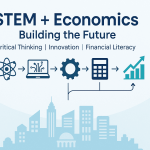Malaysia is taking bold steps toward a technology-powered future, with a renewed focus on Science, Technology, Engineering, and Mathematics (STEM) education—especially within its fully residential schools. This national direction was recently highlighted by Prime Minister Datuk Seri Anwar Ibrahim, who proposed that 70% of students in these schools should be enrolled in STEM pathways.
The initiative has been met with positive reception from education experts. Among them is Dr. Anuar Ahmad, a senior lecturer at Universiti Kebangsaan Malaysia (UKM), who sees this as a timely move to realign residential schools with their foundational goals—developing the country’s scientific and technical talent pool.
Dr. Anuar pointed out that schools like Malay College Kuala Kangsar (MCKK) and Tunku Kurshiah College (TKC) historically played a vital role in cultivating students with strong STEM foundations. The expansion of fully residential schools (SBP) and the creation of Mara Junior Science Colleges (MRSM) in the 1970s were, at their core, designed to increase Bumiputera involvement in science-based careers.
According to Dr. Anuar, the Prime Minister’s push to prioritize STEM enrollment is a step in the right direction. “It reflects a return to the original mission—to nurture skilled professionals who can contribute meaningfully to the nation’s development in science and technology,” he said.
However, Dr. Anuar emphasized that encouraging more students to enter STEM fields must go hand in hand with expanding job opportunities in these sectors. Without promising career prospects, both students and parents may remain hesitant.
“There needs to be a strong signal that STEM graduates will have access to rewarding careers. Competitive salaries and meaningful job roles in science and tech can become powerful incentives for families,” he explained.
The Prime Minister’s remarks came during a breaking fast event in Cyberjaya with corporate leaders and government-linked companies (GLCs). He underlined the urgent need to cultivate more STEM talent to meet future industry demands—including those in artificial intelligence, renewable energy, and the digital economy.
To support this, both the Education Ministry and Mara have been tasked with enhancing efforts to promote STEM among students, particularly within SBP and MRSM networks. Prime Minister Anwar stressed that despite having global tech giants like NVIDIA, Infineon, Google, and Microsoft investing in Malaysia, the local talent pool in STEM remains underrepresented.

